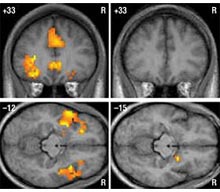“Psychopath knows the words but not the music”, J. H. Johns and H. C. Quay. Many researchers, clinicians, and writers use the terms psychopath and sociopath interchangeably for many reasons, but we use antisocial personality disorder described in Diagnostic and Statistical Manual of Mental Disorders (DSM) as well, widely used as the ‘’diagnostic Bible’’ for mental illnesses. The majority of criminals easily meet criteria for antisocial personality disorder.
Psychopathy, on the other hand, is defined by a cluster of both personality traits and socially deviant behaviors. Most criminals are not psychopaths, and many of the individuals who manage to operate on the shady side of the law and remain out of prison are psychopaths.
The concept of psychopathy was first systematically defined by psychiatrist Dr. Hervey M. Cleckley in his groundbreaking 1941 book ”The Mask of Sanity”. He described egocentric, grandiose individuals who feel no compassion or little compassion for other people, no remorse, guilt, asocial or amoral behaviors – deceiving, manipulating, abusing, killing. They don’t feel responsibility for their actions. They, according to Dr. Hervey M. Cleckley don’t learn from past behaviors, mistakes.
Psychopathy still isn’t in DSM and there are debates about this phenomenon. Although, it’s not in the DSM, psychopathy is a personality disorder defined by a distinctive cluster of behaviors and inferred personality traits, most of which society views as pejorative. Robert D. Hare is the authority regarding psychopathy. Hare’s Psychopathy Checklist helps us determine whether someone is a psychopathic personality and how high is score, from 0 to 40. Score of 30 or higher is required to identify the true psychopath, clinical psychopath. Psychopathic personality is more common in men, perhaps by a factor of eight.
Psychopaths are social predators who make us wonder ‘’Who are these people?’’ ‘’How can we protect ourselves?’’ They will charm us; manipulate us to believe whatever they want us to believe; they will let us down; leave us penniless; shatter our expectations… and maybe kill us.
Psychopaths in prison consist about 15% or 20% of the prison population. Small number of psychopaths in the population but the damage they inflict on society is very widespread and, in fact, 15% or 20% of them are responsible for at least half of the violent crimes in our society so we’ve got to understand this particular disorder.
Key Symptoms of Psychopathy, Author, Hare. R (1999)Without Conscience
Emotional/interpersonal
- glib and superficial
- egocentric and grandiose
- lack of remorse or guilt
- lack of empathy
- deceitful and manipulative
- shallow emotions
Social Deviance
- impulsive
- poor behavior controls
- need for excitement
- lack of responsibility
- early behavior problems
- adult antisocial behavior
In Britain it is estimated that one in every 200 of the population is psychopathic and by far the vast majority are neither criminal nor in prison, but harm psychopaths can cause at home and in the workplace is deeply damaging and costly. In every sense we must be concerned about their impact on families when they’re out in the community. In America it’s estimated that one in a 100 of the population is psychopathic. It’s a fact that law enforcement agencies take it very seriously. FBI is now given special training in dealing with psychopaths. We deal with primarily the most violent of violent crimes, the most horrendous of all the crimes in the world.

The studies found significant differences in these areas in the brains of psychopaths:
– Amygdala
– Prefrontal cortex
– Paralimbic structures
– Ventral striatum
The amygdala is our emotional center. It is responsible for the perception of our primary or basic emotions such as fear, anger, sadness, sex, aggression. It is involved in activating the fight or flight response, impacting how we react to potentially dangerous situations.
The amygdala is also a key part of our learning processes. It teaches us about the society we live in; in other words, acceptable rules and boundaries. Furthermore, it reinforces what is dangerous and helps us to recognize threats and danger.
In the study, psychopaths were shown a series of disturbing images. Some were fearful faces, others depicted moral violations. In a psychopath’s brain, activity in the amygdala was significantly reduced when they viewed the disturbing images.
Reduced activity in the amygdala also has the effect of dampening down fear responses. Moreover, our emotional reaction to fear in other people is also reduced. The study showed that the higher the participants scored on the Hare Checklist, the lower the activity in the amygdala.
The prefrontal cortex is our personality centre. It controls impulses, planning, the choices you make, self-control, short-term and long-term decision-making. This area is responsible for all the higher-level functions that make us human and differentiate us from other animals.
To give you an idea of what damage to the prefrontal cortex can do, one famous case is Phineas Gage. Gage suffered a devastating injury from a tamping iron to his brain into the prefrontal cortex area. His personality changed drastically overnight. Before the accident, Gage was a mild-mannered, hardworking and loving husband. Afterwards, he became violent, aggressive, ill-mannered and abusive.
The study showed that psychopaths have much less grey matter in a section of the prefrontal cortex called the orbitofrontal cortex (OFC). The OFC is thought to be involved with impulse control and decision-making. It is also important in reward-association.
The study showed that psychopaths have reduced connections between the ventromedial prefrontal cortex (vmPFC), the part of the brain responsible for sentiments such as empathy and guilt, and the amygdala, which mediates fear and anxiety.

Robert D. Hare, PhD, considered one of the world’s foremost experts on psychopathy, is a Canadian forensic psychologist, known for his research in the field of criminal psychology. He is a professor emeritus of the University of British Columbia where he specializes in psychopathology and psychophysiology. Hare developed one of the most widely used tools for assessing psychopathy – Hare Psychopathy Checklist (PCL-Revised). He advises the FBI.